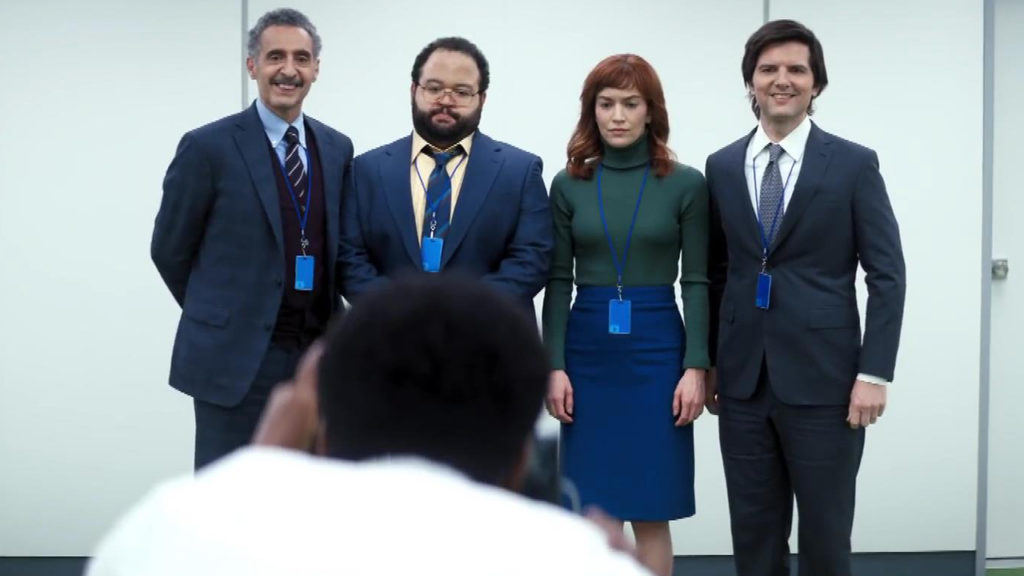What a divergent path television and film have taken since covid.
Even before the pandemic, visual storytelling was coming upon a fork in the road: to modernize or stick with tradition. Television took the former path, movies the latter. Perhaps both, driven by economic Darwinism, had no choice in the matter.
Television pushed for streaming, for smaller screens, for thinner windows between movies in theaters and movies at home. For immediacy.
Movies have always subsisted on the communal experience. On immersion. On a mutual journey, laugh or cry. On investment.
Pandemics aren’t big on investments. They favor the sheltered, the homebound, the non-ambulatory. Which is why television is in the middle of a new golden era. Witness Severance.
Ambitious, sprawling and eager to tackle issues it can’t quite bring down, Severance represents the kind of storytelling that was once the domain of Hollywood films in the 1970’s. It’s why Westwood worked more as TV fodder than film remake its second time around.
Severance feels every bit as original as Westwood — the film and HBO show. Adam Scott plays Mark Scout, a workplace drone straight from The Simpsons Sector 7G who wants to escape the drudgery of everyday life after losing his wife in a car accident. But not by suicide.
The sci-fi drama imagines a near-future dystopia where people can opt to have memories surgically erased with some nifty brain noodling, a la the 2004 independent film Eternal Sunshine of the Spotless Mind.
It’s a fascinating premise: If you could divorce your work self from your home self, would you? In Severance, the work self (or “innie”) has no memory or knowledge of the “outie,” whose life is being conducted out in the real world.
Ben Stiller, who directs the first three episodes, makes ample use of the hypothetical to examine how we live out our real and work worlds. Are they not separable? Do we not feel as if we’ve been marooned in our cubicles as worker bee zombies?
The series is a bit too in the future. We see employees who have already agreed to have their brains opened and snipped. While we know all “severed” employees likely suffered from a traumatic past, only Mark’s is explored; even then, the leap into Big Brother’s menacing, ghostly arms feels a bit forced.
But such is the price of brave narrative, and Severance is as brave as TV gets this millennium. The cast includes Patricia Arquette as an ice princess boss and John Turturro and Christopher Walken as mid-level paper pushers — with a budding romance. Both hit career highlights here.
Apple TV’s latest offering will run only nine episodes this year, and it is clearly trying to build to a conspiracy cliffhanger that will prompt a second season. Such is the path of today’s bankable entertainment: social misfits form a family of their own to face corporate villainy. There should be a handbook.
But it sure beats what covid has left for films to survive on: comic book movies and shameless awards fare.
It may not be Coppola and Lucas looking for a break in the Carter years. But Severance has a heckuva benefits plan.







